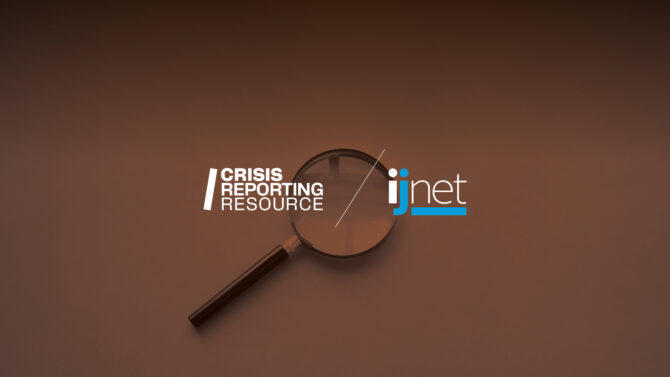Journalists are generally hunting for the most accurate and objective terms to use, but their decisions can signal all sorts of things to audiences.
This article was originally published by Poynter on October 23, 2023, and was reproduced with permission. Any reprint permissions are subject to the original publisher.
A Palestinian reporter’s response to a Sky News anchor made the rounds on social media over the weekend and served as an important reminder: The word choices that journalists make matter.
In her introduction to the segment featuring London-based reporter Yara Eid, the anchor recounted the number of people who have been killed in the war.
“It has been two weeks since Hamas first launched its attack on Israel that saw 1,400 people killed,” she said. “Since then, Palestinian officials say that more than 4,000 people have died in Gaza.”
Following the introduction, Eid spoke for a moment about the friends and family she has lost during the war but then seized on the anchor’s mismatch of the terms “killed” and “died.”
“When you first introduced what’s happening, you said more than 1,400 have been killed in Israel and more than 4,000 in Palestine have died,” Eid said. “I think language is really important to use because, as a journalist, you have the moral responsibility to report on what’s happening. Palestinians don’t just die, they get killed.”
The Washington Post’s Paul Farhi wrote about the “war on words for reporting on Gaza and Israel,” the challenges that journalists face when they choose words and the consequences for when they get it wrong.
“Ever since armed men from Gaza crossed into Israel and killed some 1,400 people, news organizations have wrestled with how to describe who they were and whom they represented,” Farhi wrote.
A badly chosen word in a media account — particularly during a bloody conflict involving Israelis and Palestinians — can elicit swift denunciations from readers, listeners and viewers.
Tips and resources for covering the Israel-Gaza conflict

The world’s eyes have been on Israel and Gaza since the October 7 attacks by the Hamas militant group that are reported to have killed at least 1,400 people in Israel.
News organizations used different words for them: militants, terrorists, gunmen, fighters. Same humans. Same actions. Four descriptors with different meanings.
And even though journalists making such word choices are generally hunting for the most accurate and objective term to use, their decision can signal all sorts of things to audiences.
“Words matter, particularly to news organizations that try to preserve accuracy and impartiality at moments of great passion and uncertainty,” Farhi wrote. “A badly chosen word in a media account — particularly during a bloody conflict involving Israelis and Palestinians — can elicit swift denunciations from readers, listeners and viewers.”
During particularly intense moments, like the outbreak of a war, journalists must make quick decisions about the words they’ll use. When the fighting began in Israel, I reached out to John Daniszewski, vice president and editor at large for standards at The Associated Press, to ask how the AP planned to refer to it. They issued guidance for AP staff later that day, which Daniszewski shared.
“The Associated Press has decided to call the present conflict between Israel and the militant Palestinian group Hamas in Gaza a war, given the widespread and ongoing nature of military operations in Israel and Gaza, now in their third day,” Daniszewski said.
As the war unfolds, the words journalists use may change. On Friday, the BBC announced it would stop using the word “militants” to describe Hamas. A statement said they “have been finding this a less accurate description for our audiences as the situation evolves.”
The word “terrorist” has been especially fraught. CNN and Fox News have used the term to describe the armed men from Gaza who killed 1,400 people in Israel. Several governments, including the United States and United Kingdom, officially designate Hamas as a terrorist group.
But plenty of other news organizations have chosen not to use the term. The Associated Press specifically advises against it:
“The terms terrorism and terrorist have become politicized, and often are applied inconsistently. Because they can be used to label such a wide range of actions and events, and because the debate around them is so intense, detailing what happened is more precise and better serves audiences.”
The war between Israel and Hamas is rooted in what may be the world’s most complex conflict. Describing it requires an equally complex set of decisions about the language to use. Journalists owe it to their audiences to keep reporting, assessing their language and adjusting as necessary.
